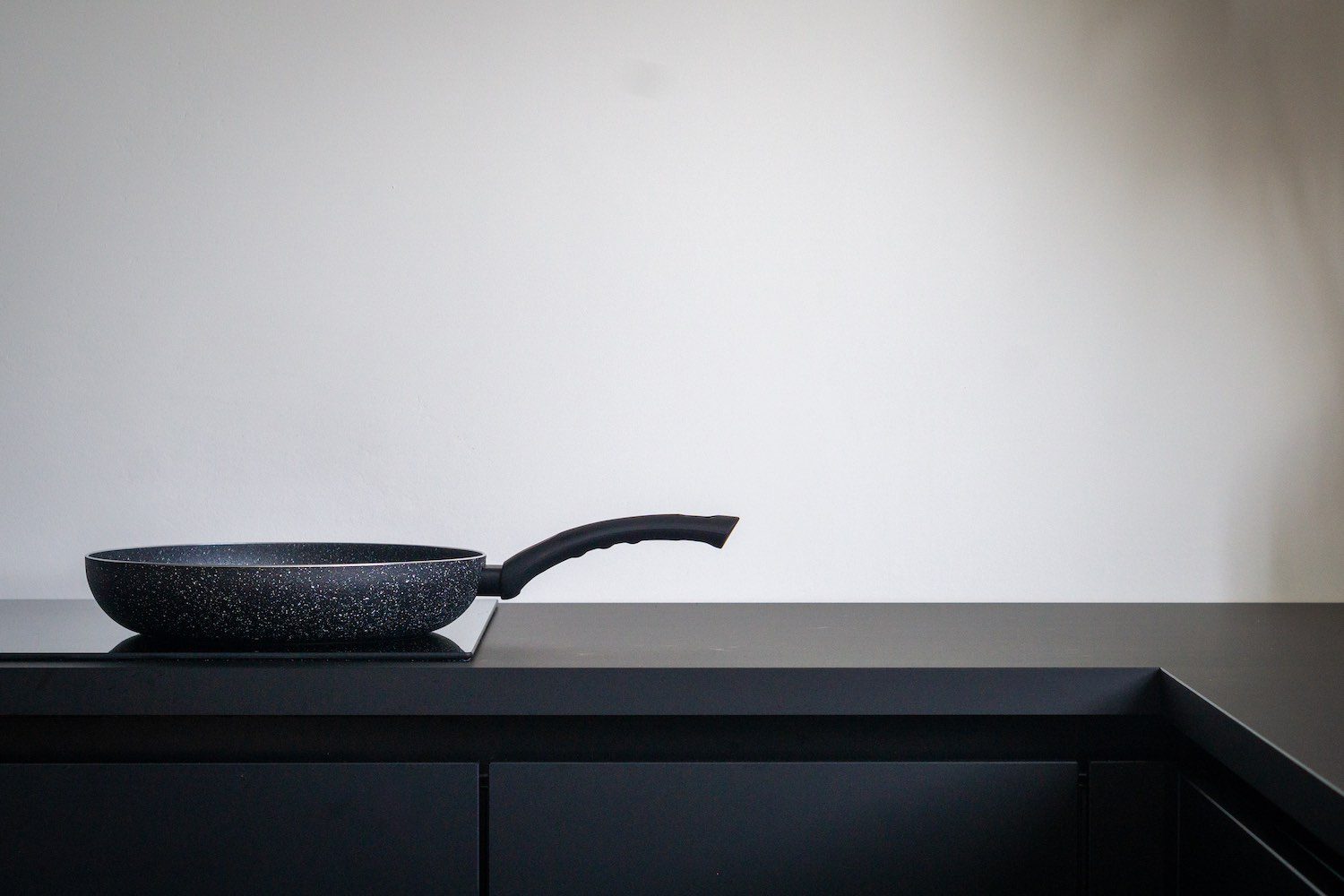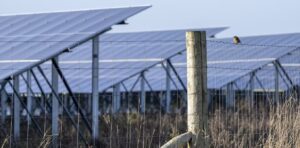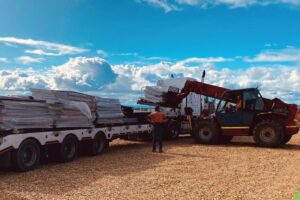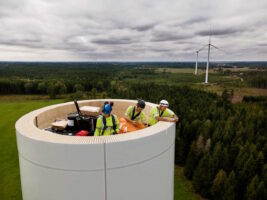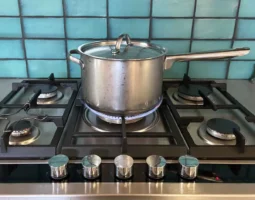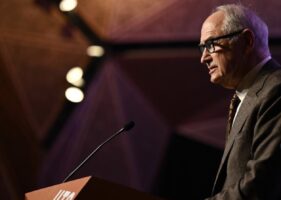The Victorian Government has updated their Gas Substitution Roadmap and outlined the next steps Victoria will take to get gas out of Victorian homes and move to more efficient electrical appliances.
Of all the states Victoria is the most reliant on gas with 2 million homes using gas in their homes and businesses. Gas is also central to Victoria’s industrial and manufacturing base, and electricity generation. 17 per cent of Victoria’s greenhouse gas emissions are from gas.
“We’re ensuring Victorians aren’t locked into expensive fossil gas prices and sky-high energy bills for decades – helping them switch to efficient electric appliances that will deliver significant bill savings,” says the Minister for Energy and Resources, Lily D’Ambrosio on the release of the Gas Substitution Roadmap Update.
The Update has been generally welcomed by organisation working to rid gas from Australian homes and transition to all-electric appliances, although some environment groups want the Government to move faster.
“Victoria’s transition off gas is both more complex and more urgent than anywhere else in Australia,” says Environment Victoria’s Senior Climate and Energy Adviser Dr Kat Lucas-Healey.
“Today’s updated Gas Substitution Roadmap demonstrates the government is seriously grapplign with the complexity but more urgency is still required.”
“Ultimately to stop runaway climate change we need to ensure that fossil gas stays in the ground so we are disappointed the Allan government hasn’t ruled out approving new sources of supply such as drilling under the Twelve Apostles or giant import terminals in Port Phillip Bay.”
The Victorian Government first released its Gas Substitution Roadmap in July 2022. Today’s Update outlines the policies implemented since then, along with new strategies to drive large-scale electrification.
Victoria’s Energy Upgrades (VEU) program, which provides government incentives for all Victorian householders to upgrade to energy efficient appliances and services, will now be expanded.
From the second half of 2024 discounts will be available for Victorians who swap their gas cooktops for electric induction stoves, and for a wider range of hot water and space heating heat pumps.
This means the program will now include all the major gas appliances that households commonly use.
The VEU already offers incentives of up to $3,600 to install efficient electric appliances such as heat pumps and reverse cycle air conditioners, and subsidies for new gas appliances were removed from the Energy Upgrades program earlier this year.
Although the difference in efficiency between induction and gas cooktops is modest, gas cooktops are often the last gas appliance in a home. Removing them means a household can finally disconnect from gas, and save around $350-400 annually on fixed network charges.
Replacing gas cooktops with induction ones also reduces the risk of respiratory conditions like asthma especially in children.
The Government also says it will “crack down on companies offering dodgy inducements to install gas appliances” which will lock householders into decades of higher energy bills.
This follows amendments to Victoria’s Planning Provisions to remove the requirements for new housing developments to be connected to gas.
The Update also includes a review of the minimum energy efficiency standards for rental homes. Victoria was the first state to introduce minimum energy efficiency standards for rented homes, by establishing a heating standard in March 2021.
These standards will now be expanded to include ceiling insulation, draught sealing, hot water, and heating and cooling, with the aim of making rental homes more comfortable and cheaper to run. Public consultations on the review will start in 2024.
Modelling carried out by the Department of Energy, Environment and Climate Action (DEECA) suggested that new standards for ceiling insulation could save renters around $387 per year, a draught sealing standard $37, hot water $205 and cooling $153 a year.
The Government has also announced that it will consult with industry and the general public throughout 2024 to prepare a Regulatory Impact Statement that will “work to understand how we can support Victorians to transition to electric appliances as older gas appliances reach the end of their lives – including in existing homes and some commercial buildings.”
This will include the phase out of gas connections in offices, retail premises (including food and drink premises), education facilities and other accommodation like residential aged care, but not industrial or manufacturing facilities.
The Roadmap Update also signals the expansion of the ban on new gas connections. Victoria had already announced that as of January 2024 all new homes which require a planning permit must be all-electric and not connected to the gas network.
The Government now intends to begin consultation on expanding the phase out to include all new residential dwellings and some commercial buildings. In September the Government announced granny flats and secondary dwellings are required to be all-electric.
“We welcome the move to ban new gas connections for houses that don’t need planning permits, closing a significant loophole in the existing ban that comes into effect next month,” says Environment Victoria’s Kat Lucas-Healey.
Of the more than 50,000 homes built in Victoria every year some 40,000 are still connecting to gas. This will pose a challenge given Victoria is aiming to build 800,000 new dwellings over the next decade.
The Roadmap Update also outlines a policy directions paper to scale up biomethane and renewable hydrogen for industry, which will be released in mid-2024, specifically for ‘harder to electrify’ industries like smelters, chemical plants, and some manufacturing facilities.
Whilst the roadmap concedes that renewable hydrogen or biomethane should not be used in residential applications it has allocated $12.3 million in funding for the Hydrogen Park Murray Valley project, which aims to deliver hydrogen into the existing Albury-Wodonga gas network.
“I’ll be keen to see the detail on the Hydrogen Park Murray Valley project and urge the Allan Government not to contemplate putting hydrogen, the finest and most leaky gas, into any pipeline system,” says Friends of the Earth No More Gas campaigner, Freja Leonard.
“It’s great to see at least one government in Australia staring down the powerful and increasingly desperate gas and oil lobby following the hottest global year on record,” says Leonard.
“We urge the Energy Minister Lily D’Ambrosio to push forward with the necessary reforms to remove gas from Victoria’s energy system altogether, and as quickly as possible.”
With the urgent need to fully electrify homes, the Victorian Government has also recognised the need to ensure enough skilled workers are available to carry out, for example, heat pump installations and electrical upgrades.
The revised State Electricity Commission (SEC) Centre of Training Excellence will be established to engage with schools and training providers, and the Victorian Energy Jobs Plan will be released in the second half of 2024.
This article was first published at our sub-site SwitchedOn, which focuses on electrification. To read more articles about the transition from fossil fuels to electric homes, and transport, and for some how-to advice, please click here.

